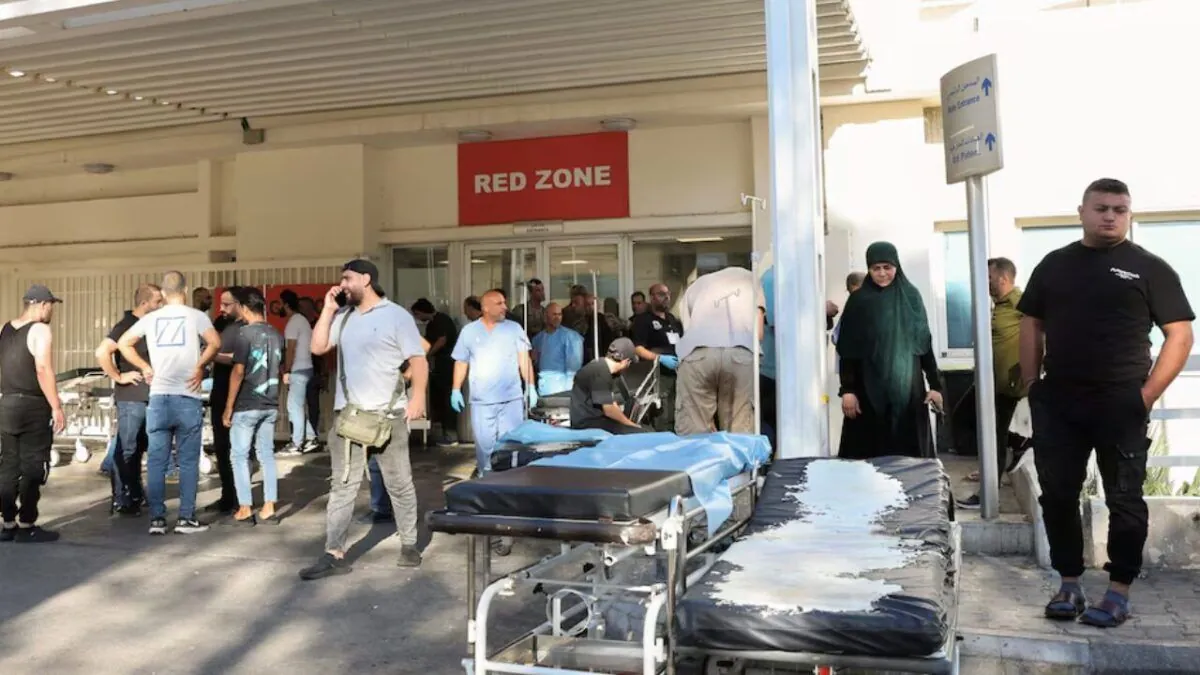In a display of remarkable intelligence capabilities, Israel executed a covert operation against Hezbollah in Lebanon, transforming the group's communication devices into weapons. This unprecedented move has left experts and officials pondering its strategic implications and potential consequences for regional stability.
The operation, which occurred in March 2024, involved planting explosives in thousands of pagers and walkie-talkies used by Hezbollah members. This sophisticated maneuver demonstrated Israel's deep penetration of the group's communication systems, catching the organization off guard and potentially disrupting its command structure.
Hezbollah, founded in 1985 in response to Israeli occupation of southern Lebanon, has long been a formidable adversary for Israel. With an estimated 25,000-50,000 fighters and a vast arsenal of over 100,000 rockets and missiles, the group poses a significant threat to Israeli security.
The pager operation's complexity and scale have drawn both admiration and concern from intelligence experts. Marc Polymeropoulos, a retired CIA officer, described it as "the most impressive kinetic operation" in his career, highlighting its "staggering" scope.
However, the strategic value of this tactical success remains debatable. While it showcased Israel's intelligence capabilities, some experts question whether it will achieve long-term objectives, such as pushing Hezbollah fighters away from the Israeli border or halting rocket attacks.
The operation was followed by intense Israeli airstrikes, including one that reportedly killed Ibrahim Aqil, a high-ranking Hezbollah commander, in a Beirut suburb. This escalation has raised concerns about potential retaliation and wider regional conflict.
U.S. officials, who were not informed of the operation in advance, have expressed mixed reactions. While some admire the tactical brilliance, others worry about its impact on ongoing diplomatic efforts in the region, including attempts to secure a ceasefire in Gaza.
Hezbollah's leader, Hassan Nasrallah, who has been in power since 1992, condemned the attacks as crossing "all red lines." However, the group's ability to mount an immediate, large-scale response may be temporarily diminished due to the disruption of its communication systems and leadership.
The operation's effectiveness as a deterrent remains uncertain. Hezbollah's complex role in Lebanon, including its political presence and extensive social services network, complicates the situation. The group's ideology, combining Shia Islamism with Lebanese nationalism and anti-Zionism, continues to resonate with its supporters.
As the dust settles, questions linger about the long-term consequences of this audacious operation. Will it lead to a broader conflict, or will it force Hezbollah to reconsider its strategies? The coming weeks and months will be crucial in determining the ultimate impact of Israel's covert pager operation on the delicate balance of power in the region.
"This attack crossed all red lines."
